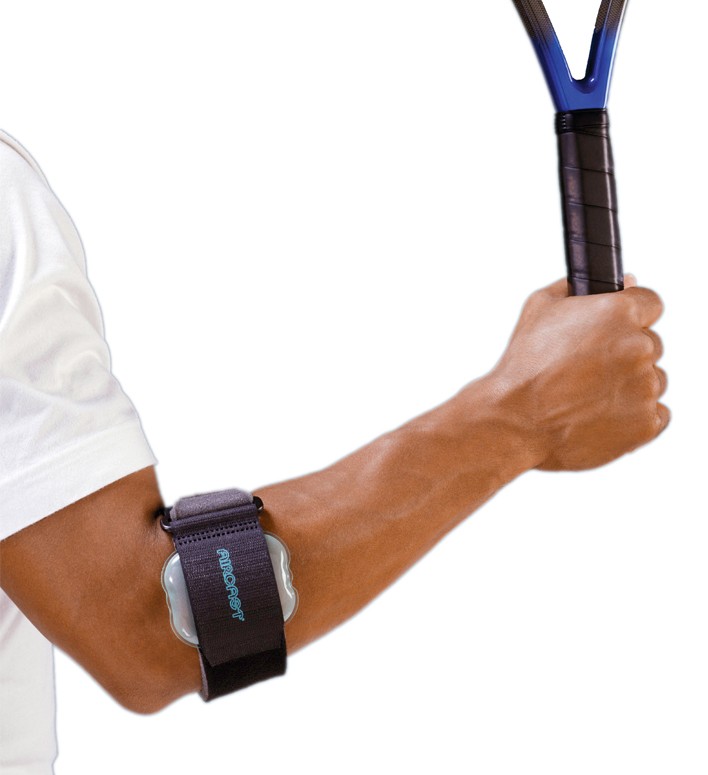Tennis elbow is a frustratingly annoying problem that is life's little "Welcome to Mid-Life!" gift. It has been referred to as some derivation of tennis elbow since the 1880's. The name came about not because it was believed to be caused by playing tennis, but because the physician that published essays in the 1880's about this problem noted that playing tennis seemed to make it more painful. Since then, the moniker has stuck. The true cause is usually quite variable: tapping sugar maples, crochet, working power lines... it rarely is directly caused by tennis. Ultimately, the problem is that you no longer heal faster than you are injuring yourself. What occurs is that the tendons that attach the extensor muscles of your wrist to the lateral part of your elbow sustain "Microtrauma" through your daily over-use (tapping maples trees as an example). In the ideal 18 year old elbow, this microtrauma would heal perfectly, without you noticing. Unfortunately, as we age, we are unable to heal as effectively and instead of healing with normal tendon, we form a less organized structure that vaguely resembles tendon. These microtrauma events pile up and eventually you end up with lateral epicondylitis, traditionally referred to as Tennis Elbow. There are literally hundreds of "treatments" for lateral epicondylitis. Like many other things in medicine (the common cold) if there are a bunch of remedies, nothing works for everyone.
So, when you are afflicted with the dreaded Tennis Elbow, what should you do? There are many approaches that I have found work well, including anti-inflammatory pills, topical salves, stretches, braces and straps, cortisone injections and platelet rich plasma injections and even surgery if all else fails. Over the counter anti-inflammatory pills and physical therapy have the most reproducible success in the published studies. Learning to "scoop" things instead of reaching to pick them up can be useful as well. In the long run, this is something that hangs around for a while and you adjust your life accordingly while you try to manage the symptoms. If this affects the way you live and some of the simple life adjustments aren't helping, get in to see your doctor and start some PT.
-Dr. J. Fallon
